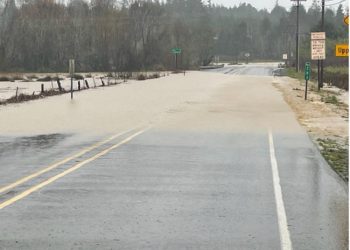Astoria, OR – Oregon is stepping up efforts to reduce its greenhouse gas emissions by launching a $2 million Energy Workforce Training program aimed at strengthening the renewable energy workforce. The initiative, announced by the Oregon Department of Energy (ODE), is designed to provide technical education on energy-efficient installations for both new and existing workers and contractors.
The funding will be distributed to a variety of institutions, including community colleges, career and technical education programs at high schools, and trade organizations that offer apprenticeship and pre-apprenticeship opportunities. Community-based organizations will also be involved in the initiative.
The training program will focus on four key areas: heating, ventilation, and air conditioning (HVAC); home energy auditing and modeling; contractor business development; and home energy efficiency upgrades. Josie Cardwell, the ODE’s energy analyst for workforce development and energy efficiency training, emphasized the importance of this training for contractors. “This training will increase their ability to identify what energy efficiencies are most appropriate for each home, determine the correct size of equipment, and ensure a quality installation for homeowners,” she explained.
This initiative is part of Oregon’s broader Climate Resilience Package, a series of bills passed by the Oregon Legislature in 2023. The package includes provisions aimed at improving community resilience, adapting to climate change, and reducing the state’s greenhouse gas emissions, particularly in the building sector. As part of the legislation, Oregon has set a target to install 500,000 heat pumps across the state by 2030. The building sector currently accounts for 34% of Oregon’s total carbon emissions.
A significant challenge in meeting these ambitious goals is the lack of a sufficiently trained workforce. According to Cardwell, there is not enough manpower to install the projected 500,000 heat pumps, and many of the skilled workers in the sector are nearing retirement. “We don’t have enough people to install 500,000 heat pumps, and a large portion of the workforce is slated to retire in the next five years,” she said, describing the need for urgent training efforts.
In addition to addressing the immediate workforce shortage, the program also seeks to improve the overall energy efficiency of homes. Cardwell noted that trained contractors will not only focus on installing heat pumps but will also assess homes for additional energy efficiency improvements. “We want them to go in and look at how they can make homes healthier and more energy-efficient, which may involve other upgrades like insulation or roof repairs,” she said.
The grants for the program will range from $150,000 to $400,000 and will be awarded through a competitive process. At least $800,000 of the $2 million will be dedicated to training programs that focus on serving underserved communities or individuals from these communities. The ODE has expressed a particular interest in programs that target environmental justice communities, which are often the most impacted by carbon emissions and pollution.
ODE is currently accepting applications for these grants, with a deadline of January 17. This funding is expected to help fill a critical workforce gap, improve energy efficiency across the state, and contribute to Oregon’s efforts to combat climate change.
As Oregon continues to push forward with its renewable energy goals, this workforce training program represents a crucial step in both meeting the state’s climate targets and preparing the next generation of energy professionals.













